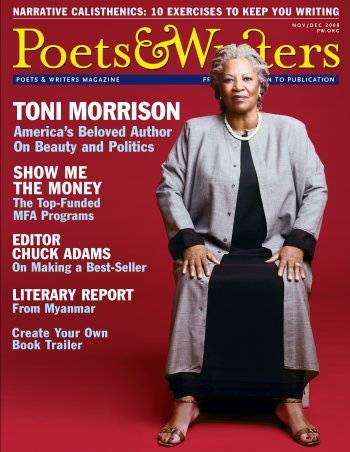
Toni Morrison, in her new novel, casts a characteristically unflinching eye on who we are and how we got here, plus our annual look at MFA programs.
Jump to navigation Skip to content

Toni Morrison, in her new novel, casts a characteristically unflinching eye on who we are and how we got here, plus our annual look at MFA programs.

A veteran editor who has worked at publishing houses both large and small, Chuck Adams of Algonquin Books talks about what beginning writers tend to forget, the secret to selling two million copies, and the problem with MFA writing.
With the publication of his new collection, Paul Guest challenges readers' assumptions about poetry and autobiography.
Getting there may be half the fun, but for Rolf Potts, author of Marco Polo Didn’t Go There, the art of traveling—and travel writing—raises more important questions than how to go from point A to point B.
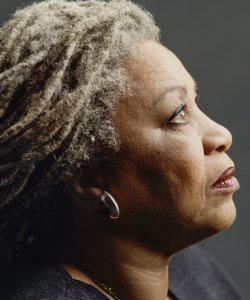
A writer doesn't work for four decades, publish ten books, and win the Nobel Prize without developing a healthy dose of skepticism. This attitude, combined with the confidence to disregard critics, has made Toni Morrison stronger than ever.
Information on more than 100 of the country's MFA programs, including faculty, program size, and other key offerings to help you decide where to apply.
The MFA
degree is increasingly popular with aspiring writers, but it’s not exactly the
most lucrative credential. While the ancillary experience of many MFA graduates may qualify them to teach or work in
publishing, it’s unlikely that upon graduation they’ll be recruited for a
high-paying job that will offset the cost of having attended. It only makes
sense, then, that prospective students should avoid having to pay for the
degree when they can.
One way MFA programs provide funding to students is by hiring them as teaching assistants to teach writing classes in exchange for a stipend and, often, tuition remission and health insurance. While each program defines its teaching assistantships differently, in general there are a few things you should know before applying and preparing for one.
Ideas for how to transition from a writing program into the broader literary community.
Stats on nineteen MFA programs that offer funding packages to their students.
After a brief but torrential thunderstorm in mid-June, eight writers of poetry and prose, myself included, huddled around a picnic table crowded with three-buck beer and leaves of printed-out poems, stories, and essays in the concrete garden of a Brooklyn bar. It had been almost a year since I'd taken a seat at a table with other writers to talk about the stuff, the meat of our writing and the project at hand every time each of us settles in to confront the blank page.
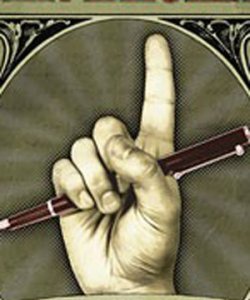
As the presidential election approaches, our national hand-wringing has ramped up and everyone is once again focused on the perennial question: What makes America America? Two recent literary anthologies show just how far this popular introspection reaches into our creative communities of writers and artists.
With so many good books being published every month, some literary titles worth exploring can get lost in the stacks. Page One offers the first lines of a dozen recently released books, including Robyn Schiff's Revolver and Adam Braver's November 22, 1963, as the starting point for a closer look at these new and noteworthy titles.
Literary MagNet chronicles the start-ups and closures, successes and failures, anniversaries and accolades, changes of editorship and special issues—in short, the news and trends—of literary magazines in America. This issue's MagNet features GUD, Night Train, Quick Fiction, the New Renaissance, AGNI, Ploughshares, Salamander, Post Road, and the Harvard Review.
Small Press Points highlights the happenings of the small press players. This issue features City Lights Publishers, Grove Press, Grove/Atlantic, Atlantic Monthly Press, New Directions, Coffee House Press, Akashic Books, Harbor Mountain Press, Goats and Compasses Press, EM Press, and Perceval Press.
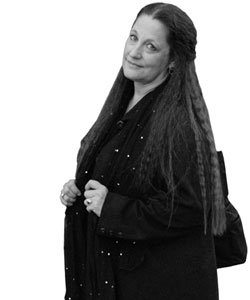
Jayne Anne Phillips, who is in her second year as program director of the new MFA program in creative writing at Rutgers University's Newark, New Jersey, speaks about the program's genesis, its connection to Newark's literary and cultural community, and finding the time to complete her new novel.
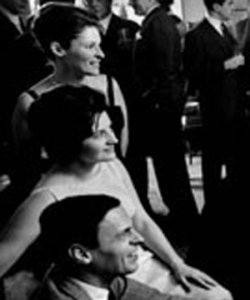
The story of the Paris Review cofounder Harold Louis "Doc" Humes is at once sad, fascinating, funny, and tragic. Doc, a new documentary by his daughter Immy Humes, which, to use her father's words, "puts a frame around the wreckage" of the story, will premiere on the PBS series Independent Lens on December 9.
The brief, contentious, and ultimately fruitless relationship between poet Stacey Lynn Brown and the editors of Cider Press, points to an essential question that pops up often in literary publishing: Whose opinion—author's or publisher's—should matter most when it comes to finalizing the product that enters the marketplace as a book?
Writers can use routine exercises to clear their minds and establish focus before settling in to the real work.
A decade after a devastating burglary stripped him of nearly everything he had written and his will to keep writing, Andrew Porter comes back stronger than ever with his debut short story collection, The Theory of Light and Matter.
More and more publishers and authors are using video as a promotional tool to attract the attention of a younger generation. But before writers collaborate with their publishers on book trailers—or even produce their own—there are some important...
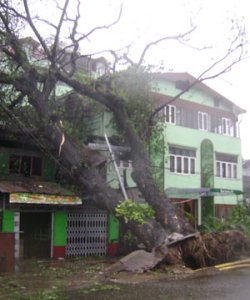
In the cyclone-ravaged country of Myanmar, where citizens face censorship and repression, contributor Stephen Morison Jr. speaks with authors who, despite the country's Orwellian police state, refuse to be intimidated and continue to write.
Novelist Aharon Appelfeld is a writer for whom language is dangerous, a man who measures every word because every word is sacred.
Deadline poetry, aspiring more for political effect than literary greatness, takes its place on the op-ed page.